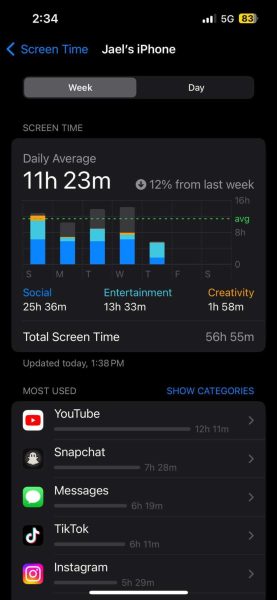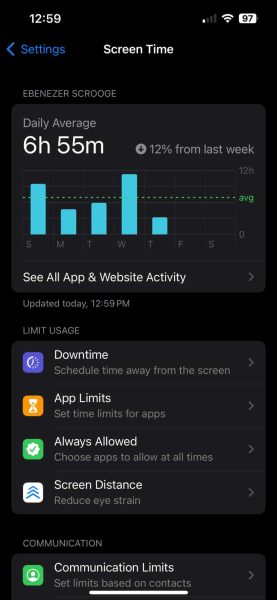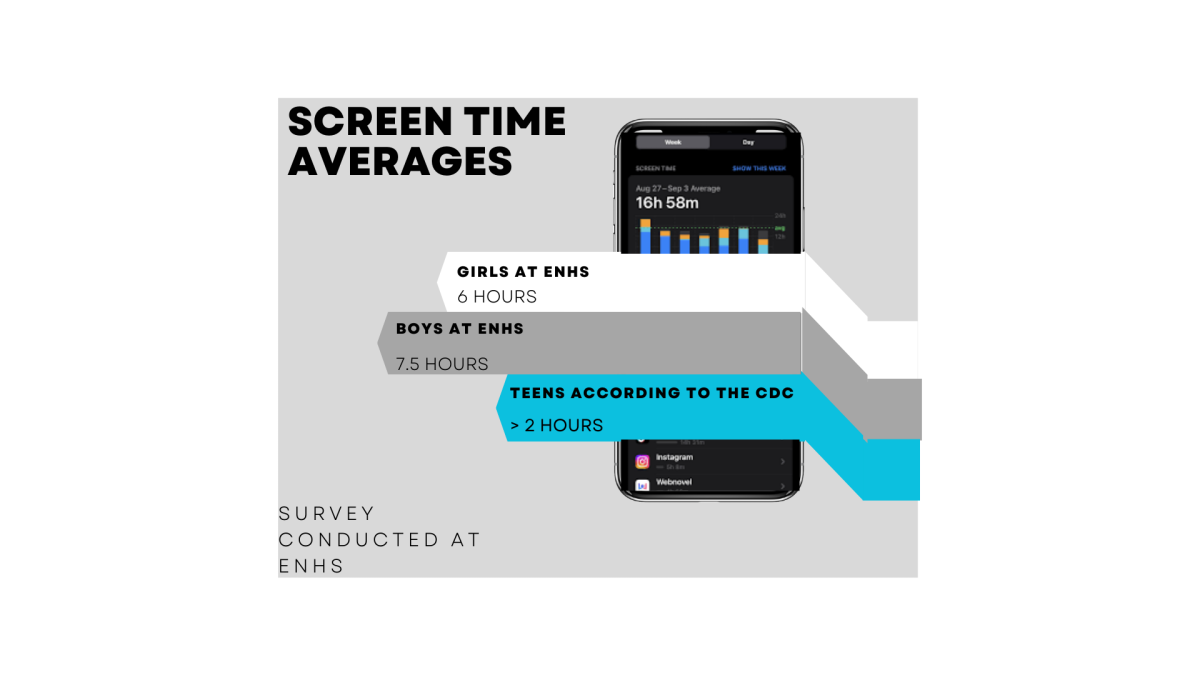Teens scroll for countless hours while they lie awake into the late hours of the night, teenagers stay absorbed into screens and switch from the real world into the online universe.
“I stay up until four in the morning, three on a normal night, but I stay up playing Fortnite.” Freshman Aiden Keith said. “I don’t check my phone much because nobody is up at four in the morning.”
As teenagers access to phones and screens continues to advance, screens become more addictive and harder to limit. According to the CDC, the average teenager should have a screen time of no longer than two hours a day.
“I stay up on Tiktok and Snapchat before bed,” senior Jael Lopez Martinez said. “Snapchat is what everybody is texting on, so it is hard to get off of.” Lopez Martinez has a daily screen time average of eleven and a half hours.

Photo courtesy of Jael Lopez Martinez
A survey that was conducted at Elkhorn North showed male students spend an average of seven and a half hours on their phones daily, while females spend an average of six hours. These long screen time results of Elkhorn North students alter their sleep patterns.
“I don’t go to bed because I stay up scrolling through Instagram reels,” senior Basil Hwaira said. Hwaira has an average of seven hours of screen time daily.

Photo courtesy of Basil Hwaira.
Also from the CDC, for a teenager to be at their full potential each day, they need eight to ten hours of sleep each night.
“I stay up until two in the morning scrolling on TikTok and Facetime people, then I wake up at five in the morning for weights.” Sophomore Christian Schlott said.
At ENHS, the male students get an average of six hours of sleep per night, and the females with an average of five hours of sleep. The females who are on their phones for about an hour less than the boys also get about an hour less of sleep.
The human sleep cycle is called the circadian rhythm; it takes cues from sunlight. When it is bright out, humans become more alert; when dark, the body starts to produce melatonin which induces sleep. Screens like tablets, phones, and computers produce a blue light, which is very similar to sunlight. When bluelight is activated during the night, the body is confused and produces less melatonin, and this also reduces the quality of sleep. This explains why ENHS students who scroll deep into the night often struggle to get quality sleep.
Although it is tricky, to put an addictive screen down at night, especially for teenagers who lose track of time, it is necessary for quality sleep. Instead of being on a screen before bed there are activities that can cause the body to prepare for sleep. Ways that anyone can induce their melatonin at night is having a structured routine before bed that a person repeats every night; a glass of milk, a hot water bath, taking time to journal or read.
Sleep allows teens to reach their full potential each day by helping restore the immune system, improve emotional stability, and improve growth. Shut off the screen before bed, shut down your mind.










